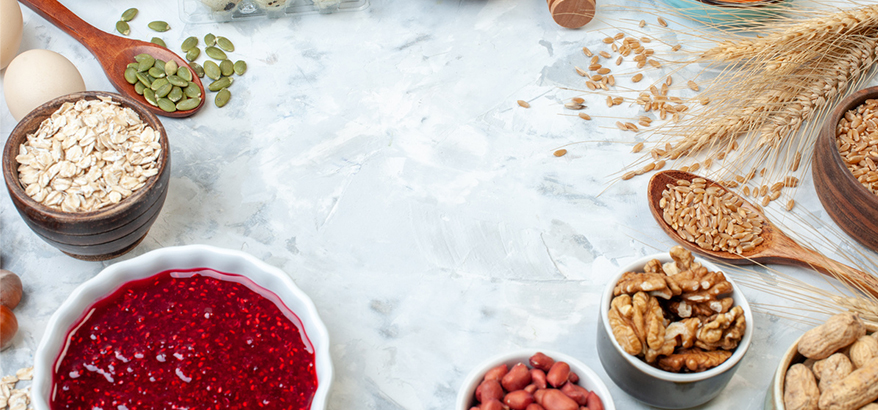
Central to Ayurvedic nutritional philosophy is the concept of the six tastes or 'Shad Rasa', which are believed to be crucial for maintaining balance and health.
Each taste corresponds to specific physical and emotional effects, making the understanding and application of these tastes essential for anyone seeking a balanced and healthy lifestyle.
At the heart of Ayurvedic nutrition lies the belief that our diet directly influences our overall well-being.
The six tastes - sweet, sour, salty, bitter, pungent, and astringent - are derived from the five basic elements: earth, water, fire, air, and ether. These elements combine in various ways to form the three doshas: Vata, Pitta, and Kapha, which are the primary life forces or energies in the body.
The balance of these doshas is key to our health, and the six tastes play a pivotal role in maintaining or restoring this balance.
Sweet (Madhura): Comprising elements of earth and water, the sweet taste nourishes and invigorates the body. It promotes strength, growth, and longevity. Foods like fruits, grains, and dairy are rich in the sweet taste and are essential for calming Pitta and Vata doshas.
Sour (Amla): The sour taste, made of earth and fire elements, stimulates digestion and enhances appetite. It is found in foods like citrus fruits, fermented products, and vinegar. Sour taste can invigorate the heart and senses, beneficial for pacifying Vata.
Salty (Lavana): Composed of water and fire, the salty taste improves digestion, lubricates tissues, and maintains mineral balance. It is present in sea salt and seaweed. However, in excess, it can disturb Pitta and Kapha.
Bitter (Tikta): Bitter foods, containing air and ether elements, are detoxifying and light. They include green leafy vegetables and herbs like turmeric and neem. Bitter taste is excellent for reducing Pitta and Kapha, though it may increase Vata.
Pungent (Katu): Characterised by air and fire, the pungent taste is heating and drying, found in spicy foods, onions, and garlic. It aids in digestion and circulation but can aggravate Pitta and Vata if overconsumed.
Astringent (Kashaya): Comprising air and earth, the astringent taste has a cooling, drying effect. Legumes, raw fruits, and vegetables like broccoli embody this taste, beneficial for Pitta and Kapha but may increase Vata.
Incorporating all six tastes into each meal is the cornerstone of Ayurvedic nutrition, assuring a balanced diet that caters to the needs of all three doshas.
This holistic approach not only focuses on the nutritional aspect but also considers the sensory experience of eating, which is vital for complete digestion and satisfaction.
By understanding the effects of these tastes, individuals can tailor their diets to their unique constitutional needs, promoting health, vitality, and balance.
Start by identifying your dominant dosha and its current state of balance.
Include a variety of fresh, seasonal foods in your diet to cover all six tastes.
Pay attention to the natural cravings of your body, as they can indicate which doshas need balancing.
Experiment with herbs and spices to easily incorporate different tastes into your meals.
The concept of the six tastes in Ayurvedic nutrition offers a rich framework for understanding how our diet impacts our health. By embracing this holistic approach, we can achieve a deeper harmony within ourselves and with the natural world.
Embark on a journey towards balanced health and wellness with Dr. Raniya Sulthana Ayurveda. Our expert team is dedicated to guiding you through the principles of Ayurvedic nutrition, helping you create a diet that supports your unique constitutional needs.
First Floor, Somanathapuram, Door No 4, 11B, Paper Mills Road, near Square Brothers Xerox, Kolathur, Tamil Nadu 600099.
First Floor, 241, Poonamallee High Rd, Maduravoyal, Chennai, Tamil Nadu 600095.
No. 63, HIG1, Ground Floor, Mogappair West Main Road, Nolambur, Chennai, Tamil Nadu 600037.

Copyrights All Rights Reserved Dr. Raniya Sulthana Ayurveda Multispeciality Clinic | Website Designed & Developed By GlintCreatives.com